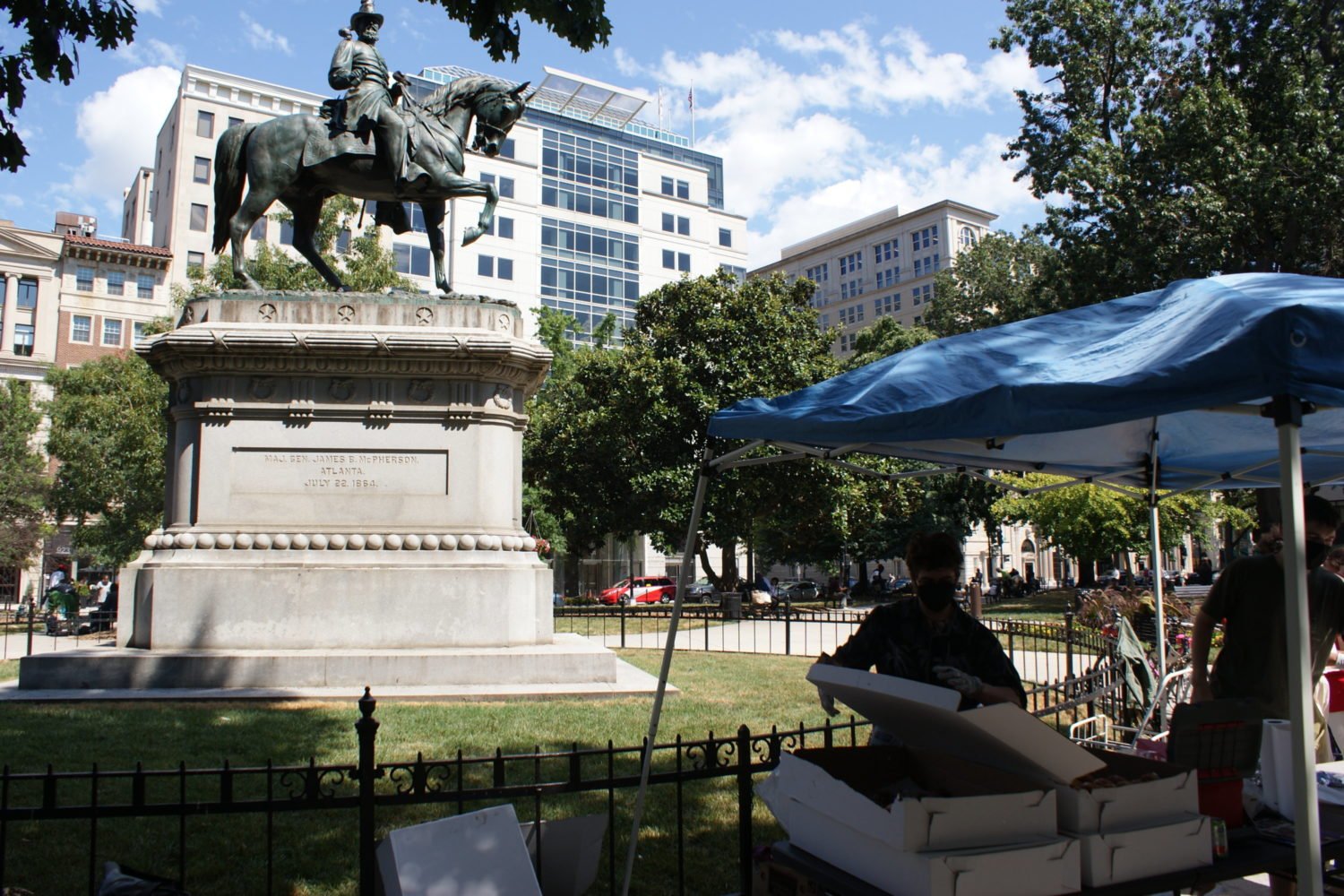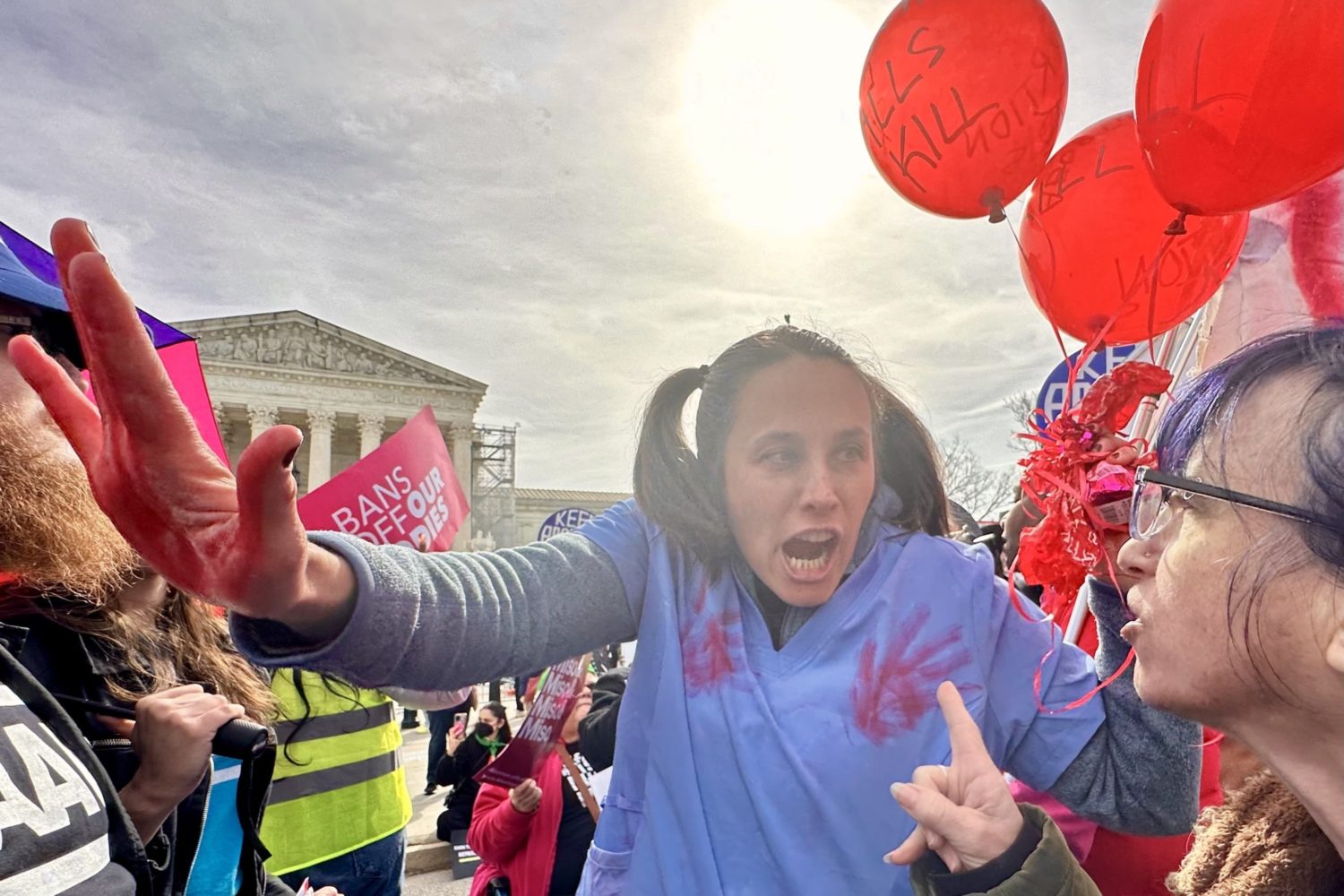Late last month, the city council in Bristol, Virginia—a small city in the southwest corner of the state—began reviewing an unusual zoning proposal: an ordinance that would restrict abortion within the city’s borders. This is among the first attempts to restrict abortion at the local level (rather than via state law) since the Supreme Court’s June decision in Dobbs v. Jackson Women’s Health Organization. In states like Virginia—where abortion is legal but not explicitly protected by state law—it’s not clear if or how localities can restrict abortion. The zoning proposal in Bristol “is kind of a bellwether,” says Richard Schragger, a UVA law professor who studies local government. “Once the Supreme Court overruled Roe, it opened the door to these very issues all over the country.”
Before Dobbs, localities would sometimes enact local anti-abortion ordinances, but they were difficult to defend in court. This was mostly due to the Supreme Court’s 1992 decision in Planned Parenthood v. Casey, which held that abortion restrictions meant to create a “substantial obstacle in the path of a woman seeking an abortion”—or an “undue burden” on abortion access—were not legal. “It became really difficult for states and localities to pass measures that impacted abortion,” says Josh Hetzler, an attorney with the Family Foundation who helped craft Bristol’s new zoning proposal. “Everything would be struck down.”
For example, in 2019, the city of Mount Juliet, Tennessee, passed a zoning ordinance that attempted to prevent a local clinic from offering surgical abortions. The ACLU of Tennessee sued, and a federal court issued an injunction—the law had created an “undue burden” for people seeking abortions, its decision said. But the Dobbs decision overturned Casey—eliminating the undue burden standard—which Hetzler believes has created a “new situation.” Dobbs gave states the power to make laws restricting abortion, but it also “opened up the door for localities to regulate abortion,” he says.
“He might be right,” says Diane Derzis, the owner of Bristol’s sole abortion clinic, Bristol Women’s Health. Derzis also owned Jackson Women’s Health Organization, the clinic at the center of Dobbs. “The Supreme Court did leave it wide open for this kind of stuff, so that’s why the [Dobbs] ruling was far more important than what anyone talks about. This is a wide-open door. In fact it’s not even that—part of the building is missing, and you can just walk right through and pass as much legislation as you can.”
Derzis opened Bristol Women’s Health this past July. For decades, a reproductive health clinic offered abortions just over the state line in Bristol, Tennessee. But after the leak of the draft opinion overturning Roe v. Wade, a gynecologist there saw the writing on the wall: Roe would fall and Tennessee would begin to enforce its near-total abortion ban. On his GoFundMe page, that gynecologist—Dr. Wesley Adams—wrote that he and his staff would “do everything within our power to help keep abortion accessible to the women in our area.” They found a new location in Bristol, Virginia—about a mile up the road—and crowdfunded more than $100,000 to buy equipment. Adams brought Derzis on board, and in July, Bristol Women’s Health was born.
The zoning proposal is a reaction to this new clinic’s arrival, which has roiled portions of town. But even if it’s passed, the ordinance would not affect operations at Bristol Women’s Health, which is protected by state and local grandfathering laws. Instead, the ordinance would prevent other clinics from opening in the future. “People don’t want their city to become a tourist destination for abortion,” Hetzler says. “We see it as a serious threat that more abortion facilities will come into Bristol,” due to the city’s proximity to states with significant abortion restrictions—including West Virginia, Kentucky, and Tennessee.
Such concerns have led to the zoning proposal and, perhaps, to the “sanctuary city for the unborn”-style resolutions that some nearby jurisdictions (including Tazewell and Russell County) have passed. But those proclamations aren’t enforceable, which makes Bristol’s proposal unique: “This is the first [local anti-abortion proposal] in Virginia to have any teeth to it, to have any sort of force of law,” Hetzler says.
If Bristol’s city council does pass the zoning ordinance (which is currently under review by the city’s attorney and planning commission), it’s almost certain to face legal challenges. During an October 25th city council meeting, one issue that came up was Dillon’s Rule, a legal principle under which localities have only the powers explicitly granted by the state. The state of Virginia has not specifically empowered localities to regulate abortion, which means that the zoning proposal may be illegal.
Hetzler takes this issue seriously. “The Dillon Rule is pretty well-established, but it hasn’t been directly applied to the issue of abortion before,” he says. “We don’t have a court case to point to, but we have court cases that we can analogize to, one of which is a Virginia Supreme Court case that I think makes this almost a slam dunk.”
The case he’s referencing is from 1989, when a landfill was slated to come to Prince William County. Local leaders quickly passed a zoning ordinance outlawing landfills, and the landfill permit-holder sued. But the court let the zoning law stand; the justices wrote that the municipality “acted well within its authority in prohibiting the use of property for landfills”—even if the state didn’t explicitly say that restricting landfills was okay. “So you can take out landfills and you can plug in abortion facilities,” Hetzler says. “It gives us broad authority to prohibit certain things, even things that are legal—landfills are clearly legal, but it doesn’t mean you can’t prohibit them through zoning.”
Geri Greenspan of the ACLU of Virginia says that while “localities do have fairly broad authority under Virginia’s zoning statutes, that authority is subject to some limits.” For one, the city of Bristol would likely have to prove in court that the anti-abortion ordinance has a “valid basis in terms of protecting residents’ health, safety, or welfare.” (At the October 25th city council meeting, Hetzler pointed to a part of the Virginia State Code stating that zoning codes should “facilitate the creation of a harmonious community” and protect against “loss of life.”)
Greenspan believes that there may also be constitutional issues with Bristol’s zoning proposal. While Dobbs overturned the constitutional right to an abortion, Americans still enjoy the constitutional right to contraception—though Justice Thomas’s concurring opinion in Dobbs hinted that this right may be in jeopardy, too. According to Greenspan, the “broad language” of Bristol’s ordinance (which prohibits using the city’s land or buildings for anything that would “cause the death or termination of a pre-born human life at any stage of development”) might restrict access to things beyond abortion, including fertility treatments and contraception. If the ordinance had the effect of chilling contraceptive access in Bristol, that could be unconstitutional.
Autumn Katz, an attorney with the Center for Reproductive Rights, sees another issue: When a federal court struck down the anti-abortion zoning ordinance in Mount Juliet, Tennessee, it did so for multiple reasons—one of them unrelated to Casey. Per that decision, Mount Juliet “likely lacked any rational basis for distinguishing Surgical Abortion Clinics from other kinds of clinics performing outpatient surgical procedures.” In other words, the court said the city couldn’t shut down one type of outpatient surgery (abortion) without a rational basis for excluding other comparable medical procedures.
“I think there are strong legal arguments to be made about why [local anti-abortion] ordinances should be struck down,” Katz says, “but it’s hard to say what courts will do.” Post-Dobbs, this issue has not yet appeared before a court—but it’s likely just a matter of time. “In the aftermath of the Supreme Court decision, it certainly seems like we’re seeing these [local anti-abortion ordinances],” Katz says, pointing to ones currently being debated in the New Mexico cities of Clovis and Hobbs. “But whether they’re going to be the next big thing—I think that’s just going to depend on if they’re challenged and whether those challenges are successful.” That’s why Bristol’s zoning ordinance may be closely watched: If the city passes the ordinance and someone sues, the court’s decision could be a bellwether for local anti-abortion efforts nationwide.
But one effect that the zoning proposal is not likely to have is scaring Bristol Women’s Health: Reached by phone, Diane Derzis sounds defiant. “It doesn’t affect me in any way,” she says of the proposal, which explicitly exempts existing clinics. “And it’s a good time of year to try this kind of shenanigan, too, because I think it shows the voters in Virginia exactly how rough it’s going to get in this nation for a woman who’s trying to get an abortion.”
Asked if the zoning ordinance could limit her ability to expand abortion services—say, by opening a second clinic in Bristol, which would be illegal if the zoning law passes—Derzis says no. There’s plenty she can do with the space she has: “I could be open 14 hour days, seven days a week.”

















